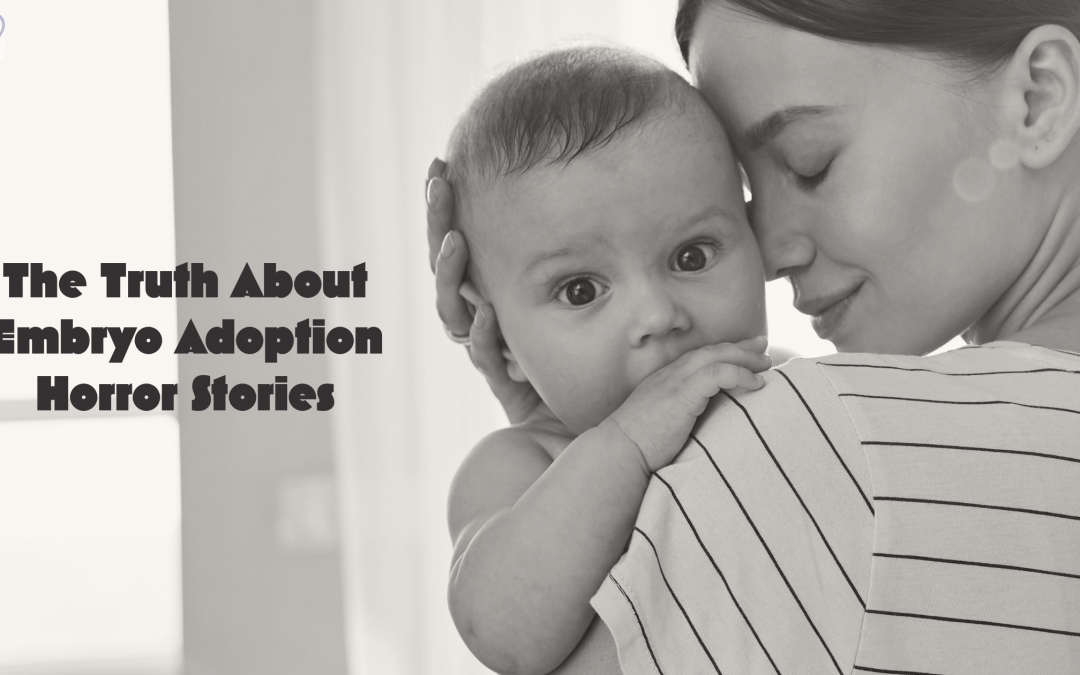Like all people using the internet, you have probably Googled something. Maybe you need to find an address or look up a restaurant. Maybe you are in a heated debate on who starred in a certain movie and do a quick search on your phone to find out who was right. Very likely, you Googled ‘embryo adoption’ or ‘embryo donation,’ and found our website!
When you Google embryo adoption or donation, a search term is auto-suggested: embryo adoption horror stories.
This means this term has been searched by multiple people a significant amount of times, which indicates it is on many families’ minds when considering embryo adoption or donation.
Embryo donation and adoption involves the transfer of embryos from one couple (many of whom have completed their family through in vitro fertilization and have surplus embryos) to another couple (who is seeking to build a family but may have fertility challenges). The process is typically well regulated and involves legal, medical, and ethical considerations.
Embryo donation and embryo adoption, like any medical or adoption process, can have its challenges, but it is generally considered a positive and ethical option for individuals and couples struggling with infertility.
Embryo adoption “horror stories” are quite rare. However, it is important to note that any medical procedure or adoption process can come with its own set of challenges, and individual experiences may vary. It is possible for some families to face unexpected or difficult situations during their journey. Issues such as communication breakdowns, misunderstandings, or emotional challenges may arise.
Keep in mind that the term “horror story” may be subjective, and what one person considers a horror story might not be the same for someone else. That being said, it is crucial to approach these stories with sensitivity, as they involve personal and often emotional experiences.
If you are considering embryo adoption or have concerns about the process, it is recommended to thoroughly research and consult with professionals in the field to gain a comprehensive understanding of the potential challenges and benefits. It is also recommended to work with reputable embryo adoption or donation program, and have open communication with all parties involved. Additionally, connecting with others who have gone through similar experiences can provide valuable insights and support.
If you are interested in embryo donation or have concerns, you can learn more at EmbryoAdoption.org.


Recent Comments